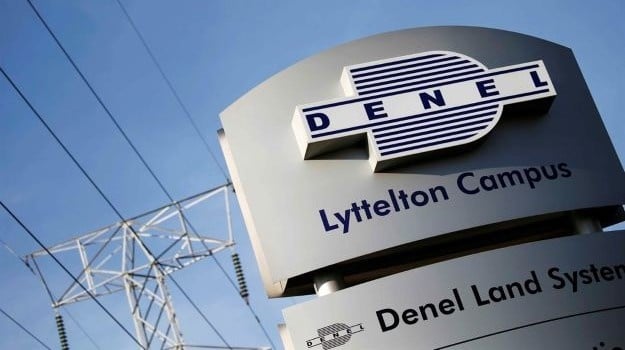


Denel is facing severe liquidity constraints, says Fitch Ratings.
- The state-owned arms manufacturer’s future hangs in the balance without continued government support, says Fitch.
- The rating agency has taken a decision to downgrade Denel further into junk status.
- Fitch says management volatility may impact the group’s ability to implement its turnaround strategy.
Embattled state-owned arms manufacturer Denel’s “severely strained” liquidity position and lack of “timely” government support has led ratings agency Fitch downgrade its credit rating further into junk status.
Fitch on Tuesday lowered Denel’s national long-term rating from B(zaf) to CC(zaf), and its national short term rating from B(zaf) to C(zaf). The agency decided to rate Denel on a standalone basis – in the absence of sovereign support.
“The liquidity position is a result of insufficient recapitalisation to effectively restart and maintain operating activities, while facing constraints imposed by the coronavirus pandemic,” Fitch noted.
It said limited operating capacity and continuing management “volatility” raised the likelihood of Denel not being able to implement its turnaround strategy.
Last month the group’s CEO, Danie du Toit resigned. He was later replaced by Talib Sadik.
“The departure of the CEO in August 2020 exacerbates the risks associated with effective implementation of the agreed turnaround plan.
“While Denel has announced an interim CEO with knowledge of the group, the recent departure highlights the elevated level of turnover of executive management over the past few years,” Fitch said on the latest management developments.
Last week, the Department of Public Enterprises briefed Parliament’s oversight committee on the group’s financial performance. Its unaudited results show the group recorded a R1.7 billion loss for the 2019/20 financial year.
While Denel received a R1.8 billion equity injection from government last year, Fitch noted that it was insufficient to address liquidity constraints, working capital requirements and operating capacity given the challenges posed by the Covid-19 pandemic.
“The lockdowns in South Africa have severely limited operating activity between April and mid-August 2020. The resulting cash burn means Denel has insufficient liquidity to support operations, highlighted by its inability to pay salaries entirely and fund working capital,” Fitch said.
The ratings agency said that Denel faces multiple non-payment risks – both relating to salaries and payments to lenders and trade creditors (suppliers).
If Denel is unable to restart operations effectively there is also the risk of Denel incurring fines or losses of advanced payments of orders are cancelled – contributing further liquidity pressures. It also noted that timely financial support from government is uncertain which would lead to further delays in the turnaround plan.
Although government has extended its government guarantee framework into September 2023. Fitch said that lenders are “cautious” of committing longer-term lending until the operational, strategic and corporate and governance issues have been addressed.
A briefing by the board of Denel to the portfolio committee on public enterprises, on its governance and financial challenges scheduled for Wednesday, has been postponed.

